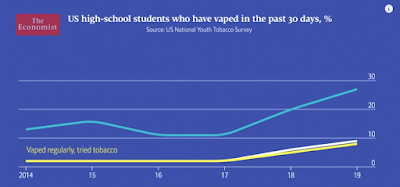As regular readers know, Theresa Marteau has got a thing about the size of plates and glasses, and she is lucky enough to work in such Mickey Mouse field of academia ('public health') that people will give her money to feed her obsession. She and her teams have conducted four experiments in the last few years looking at whether the size of wine glasses has an impact on how much wine people consume.
All her studies were conducted in Cambridge, but that is the only consistency. The results have been all over the place.
One study found that drinkers consumed 13 per cent more wine from a 350 ml glass than from a 290 ml glass, but drinking from a 450 ml glass made no difference - except in bars, where people drank more from a 450 ml glass but not from a 350 ml glass. None of these findings were replicated when the experiment was conducted again.
Another study found that drinking from a large glass was associated with greater consumption, but drinking from a smaller glass was not associated with less consumption. But only in bars, not in restaurants.
Another study found that people in bars drank more from a 510 ml glass than from a 370 ml glass, but there was no difference between consumption from a 510 ml glass and a 300 ml glass, nor was there any difference between consumption from a 300 ml glass and a 370 ml glass.
And yet another study found that glass size made no difference to consumption at all, except that wine from larger glasses 'was consumed more slowly and with shorter sip duration, counter to the hypothesised direction of effect'.
What do you when your junk science produces a load of weak, contradictory and mostly statistically insignificant results? In 'public health', you stick them all together in a meta-analysis and hope for the best.
Or in this instance, a 'mega-analysis' - for that is how they describe their study published in Addiction today. Marteau and friends have bunged together the raw data from three of their four studies, leaving out the one which ran 'counter to the hypothesised direction of effect', and treated it as if it were one big study.
After a bit of tinkering, their mega-analysis produced these findings:
Out of seven tests, only one supports the hypothesis that glass size makes a statistically significant difference to how much wine people consume. And, overall...
There were no statistically significant differences in wine sales by glass size when combining data from bars and restaurants.
The authors are undeterred by the lack of a plausible explanation for their findings. Why would glass size make a difference in restaurants but not in bars? Why would a fairly large glass increase consumption but a genuinely large glass not? Why would one experiment produce a positive result when another identical experiment does not?
They throw around a couple of possible explanations for the inconsistency of results between bars and restaurants, including the old chestnut that statistical significance could not be reached because the studies were 'underpowered'. They then admit that...
An alternative explanation for no significant effect of wine glass size on wine sales being observed in bars is that it reflects a true null effect: wine glass size has no impact on wine sales in bars.
Indeed. But they do not let that thought detain them for too long. Rather than putting their one statistically significant finding down as a fluke, they focus exclusively on it and make the dubious assertion that...
The effect observed in restaurants for 370- over 300- ml glasses—if sustained—has the potential to make a meaningful contribution to reducing alcohol consumption in licensed premises.
A press release was then sent out with the positive association emphasised and the following quote...
“If we are serious about tackling the negative effects of drinking alcohol, then we will need to understand the factors that influence how much we consume,” added senior author Professor Dame Theresa Marteau. “Given our findings, regulating wine glass size is one option that might be considered for inclusion in local licensing regulations for reducing drinking outside the home.”
Don't you just love evidence-based policy?
I gave a quote to the Telegraph about this flim-flam...
Christopher Snowdon, the head of Lifestyle Economics at the Institute of Economic Affairs added: “The idea that wine consumed in restaurants has any significant impact on the number of alcohol-related deaths is just daft. Most people only visit restaurants occasionally and most alcohol is consumed in the home. The people who are most likely to suffer from alcohol-related diseases do not have the money to drink wine in restaurants in any case. It is a sign of how out of touch public health campaigners have become that they think the size of wine glasses is a pressing issue that requires government action.”














